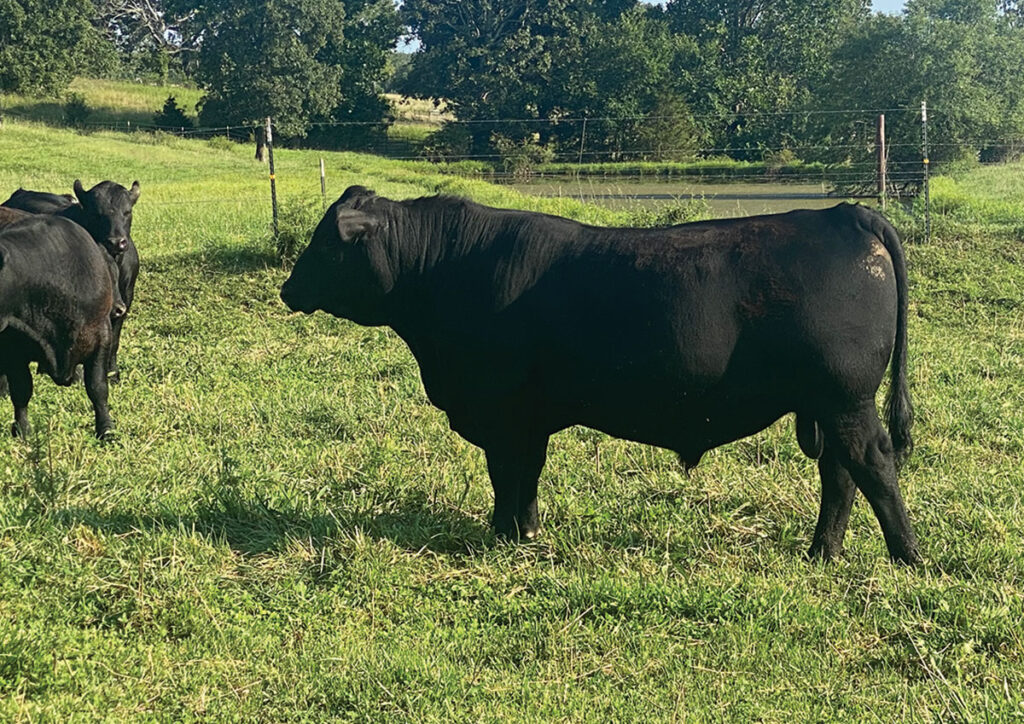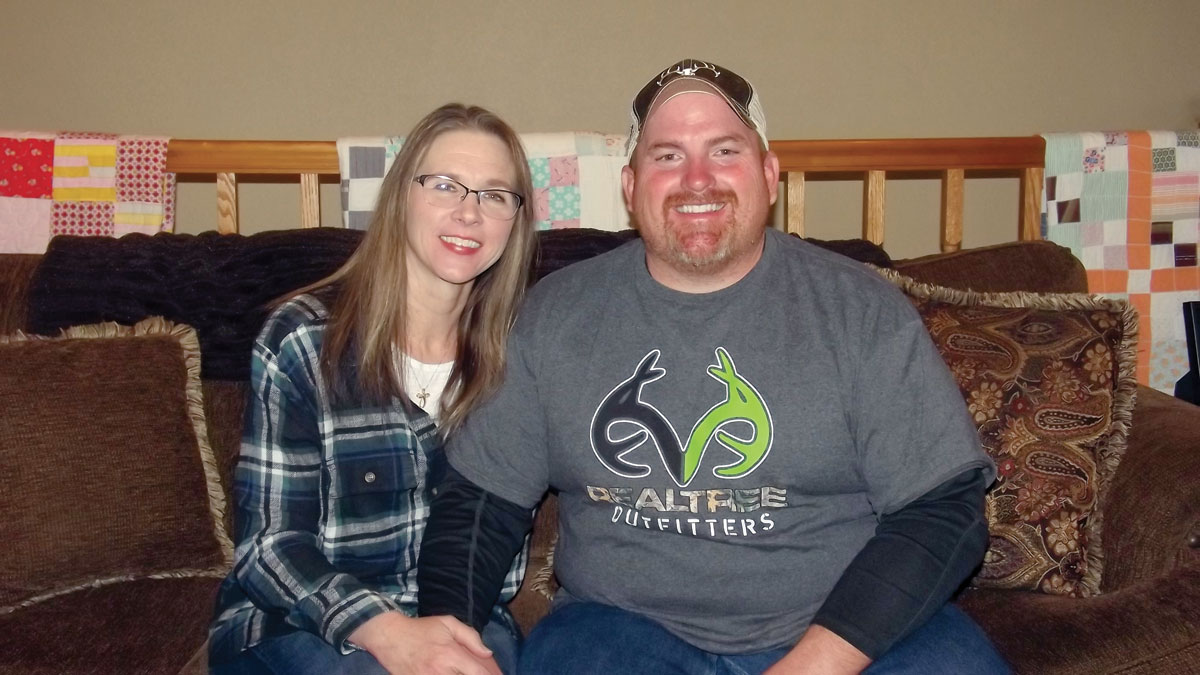
Flying W Farms likes to keep numbers small to focus on quality
WILLOW SPRINGS, MO. – If anyone has experience in the cattle industry, it’s Kyle Wake of Flying W Farms.
He is a fourth-generation cattle producer. Each generation has filled a space in the industry’s cow/calf sector; his great-grandfather, Elsa Gasperson, was a Hereford breeder, and his grandfather, Johnny Wake, and father, Kim Wake, ran commercial cow/calf herds.
In 2012, Kyle and his father began selling commercial bulls, and in 2016, the two purchased the first registered Angus cow attributed to Flying W Farms. They continued adding Angus females to the herd while culling what they deemed undesirable cattle.
Flying W Farms continues to be a family ordeal. In addition to Kyle, the operation is run by Kyle’s father, Kim, and mother, Libby; his sister, Kameron, and brother-in-law, Chris Thomas; nieces Brynlee and Everly; and Kyle’s girlfriend, Kaci Payne.
“For me, the passion of raising seedstock is in the evaluation and breeding,” Kyle said.
He explained that opening the door for crossbreeding creates more breeding options (as opposed to being limited to one breed) and encourages heterosis. The operation mainly crosses Angus, Simmental, and Maine-Anjou in two- and three-way crosses.
“We feel that these breeds complement one another very well,” Kyle said, pointing out the maternal nature of the Angus, the power and muscle of the Simmental, and the structural integrity of the Maine-Anjou.
The farm, which uses AI, mainly runs a late summer/early fall calving herd. The cattle are selected for genetic evaluation – phenotype is a priority, and the pedigrees determined to be the best are then selected, followed by EPDs.
“We keep our breeding decisions simple,” Kyle said. “We look for trouble-free cattle that lay down and calve each year unassisted, then bring a heavy calf in at weaning in a commercial setting.”
The farm manages around 20 to 30 head of momma cows, although the herd size fluctuates yearly.
“We like to keep numbers small as it helps us keep quality up,” Kyle said.
He stated this process puts the operation in a position to market a sufficient number of bulls each year.
Balance is critical at Flying W Farms. The philosophy is that an animal should excel in every aspect, whether that be production, maternal, or terminal traits. Kyle said producing problem-free cattle requires ensuring there is no imbalance in any area, even if that means another area is exceptional.
“I have always looked at breeding cattle as having a pitcher of water that you can pour into three cups–production, maternal, and terminal,” Kyle said.
He explained that the amount of water could not possibly fill all three; you can fill a third of each or sacrifice one for another. This is where balanced breeding comes in.
It’s important to remember that you can’t have good breeding without good feeding.
“As far as feed goes, the growing cattle receive a feed that consists of hominy, soy hull pellets, corn gluten pellets, and dried distillers,” Kyle said.

Feed-grade lime is added to the mix to balance the phosphorus and calcium levels, then top-dressed with a mineral pack. All cattle on the farm feast on a mix of fescue, clover, rye- and crabgrass throughout the summer, with the occasional snack of hybrid Sorghum Sudangrass.
The cattle are fed a combination of gin trash, a byproduct of the cotton ginning process and when the cotton fibers are separated from the seed boll, and a salt mix in the winter months.
“We see the cows as our employees,” Kyle said, emphasizing the nutritional value of this mix, “and they cannot be successful unless we supply them with what they need to complete the job.”
Kyle applies the same ethical standard to health protocols. Cattle on his operation are vaccinated and wormed twice yearly–once in the spring and once in the fall. Hoof care is monitored, and those plagued by issues are culled.
That said, it’s no surprise that Flying W Farms stays current with industry advancements.
“We watch for updated practices and products and use what we think will help us and our customers moving forward,” Kyle said.
He has served on the board of the Heart of the Ozarks Angus Association and currently serves on the Southwest Missouri Performance Tested Bull Sale Board.
“These things have helped us with making breeding decisions as we have had the chance to see other operations and cattle across the country, including bulls in stud.”
Sustainability is a priority; Flying W Farms practices rotational grazing and ensures optimal forage is available for the livestock.
“One day we hope to see my nieces and my future children able to enjoy working with livestock and farming just as we do today,” Kyle said.
Of course, every farmer must overcome obstacles at some point. Kyle says the biggest challenge his operation faced was the transition to seed stock cattle.
“We took the road many often follow and used the ‘latest and greatest’ genetics that looked good on paper,” he said, describing how that led to the quality of his cattle dropping significantly. However, this issue was noticed–and remedied–as quickly as it came on.
Despite the trials and tribulations, the folks behind Flying W Farms remain optimistic.
“Currently, commodities are low, and cattle are high. There is some money to be made,” Kyle said. “I feel like it is a great time to be in the cattle industry.”
Flying W Farms sells commodity feed mixes off the farm in super-sacks and 50-pound bags. It also offers farm tours upon request. Cattle sales include private treaty and consignment; delivery options are available.







